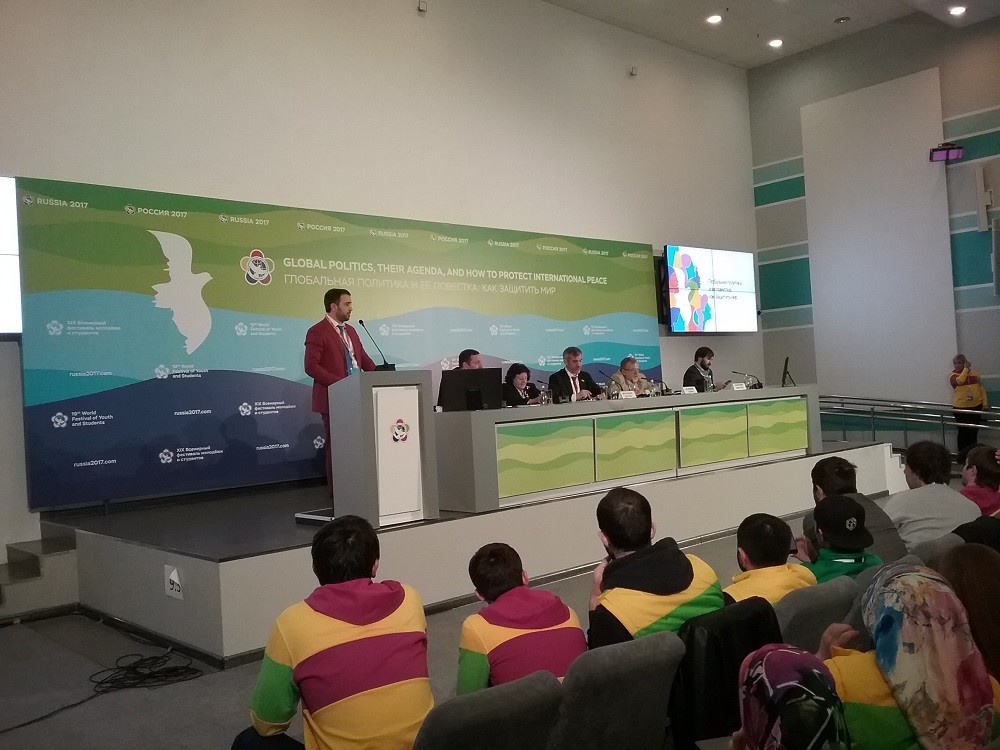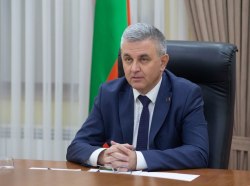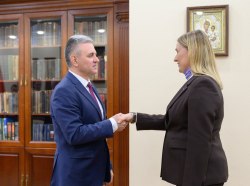Sochi, 18 October. /Novosti Pridnestrovya/. The causes of conflicts and the impact of the ethnic and religious factor on them are the central theme of a debate held at the meetings of the Global Policy and Its Agenda panel at the 19th World Festival and Youth and Students.
Among the speakers were prominent Russian experts, including Vladimir Zorin, a member of the presidential council for interethnic relations; Buvaysar Satiev, an Olympic champion and State Duma member; historian and sociologist Leokadia Drobizheva and Ruslan Gusarov from the State University of Government. The Pridnestrovian diplomats also took part in the discussion.
War of civilisations
There are about 500 international conflicts today. Most of them are interethnic conflicts that emerge as a result of social, economic, cultural reasons, Vladimir Zorin said, adding that these conflicts become even more exacerbated when sides begin to appeal to national issues.
This is exactly what happened in Pridnestrovie in the early 1990s. The Moldo-Pridnestrovian conflict is essentially a conflict of identities — Kishinev actively promoted the idea of integrating with Romania, while the left bank region was in favour of preserving the USSR. This conflict began to slide into escalation after the Moldovan parliament had approved a discriminatory language law that put national minorities of the MSSR in an unequal position in relation to the Moldovans.
Leokadia Drobizheva agreed with Zorin, citing Samuel Hathington's forecast: "There will be no wars between nations; there will be wars between civilisations." Conflicts, according to her, are not always related to resource struggles but may be a result of clashes between the interests of world powers in a particular region.
The efficient way of solving the conflict is the establishment of a truce, its freezing, the historian believes. When this happens, Drobizheva says, people shift their attention and focus on the values of development. The conflict can be finally resolved only if the sides manage to understand each other's positions and launch the conciliation process. Another important factor is a third-party interference, i.e. when the conflict is halted through the mediation of influential social and political forces or authoritative leaders.
This is difficult to disagree with. For example, the hot phase of the Moldo-Pridnestrovian conflict was frozen due to the intervention of Russia, which continues to carry out a peacekeeping mission in the region. However, Kishinev keeps attempting to dismantle the current peacekeeping format and make Russian withdraw its troops from Pridnestrovie. The Moldovan authorities, in the meantime, do not want to understand Pridnestrovie's position, preferring economic and political pressure to resolving socio-humanitarian issues.
Pridnestrovian issue
As a follow-up to the discussion, Pridnestrovian diplomat Dmitry Palamarchuk asked the speakers if there are successful examples of conflict resolution today.
Such, according to Drobizheva, is the Anglo-Canadian conflict, which has been resolved in legal terms.
"There have also been examples of settlement within certain countries, for example, the Scotland problem in Great Britain," Drobizheva recalled the recent referendum at which over half of the Scots voted had voted against the country's exit from the UK.
Drobizheva admits, at the same time, that "even the already-extinguished conflicts may flare up again."
There are examples, she notes, where new states appear as a result of the settlement, the number of which has multiplied over several decades.
According to Palamarchuk, this suggests that the formation of new states in the world has not yet been completed, and Pridnestrovie has every reason for international recognition. The diplomat agrees, at the same time, that the ethnic factor is not determinative in most conflicts.
"The case of Moldova and Pridnestrovie is a striking example. Yes, we don't have mutual hatred with the Moldovan population, but yet we have insurmountable ideological, civilizational and socio-economic contradictions. Our conflict can be resolved only through separate but good-neighbourly co-existence," Palamarchuk believes.
Moreover, he says, Moldova does not seek compromise, refuses previous agreements and is actually waging a hybrid war against Pridnestrovie, using economic, political and information means.
According to him, Pridnestrovie may benefit from the experience accumulated by conflict regions in terms of at least partial deterrence of threats.








